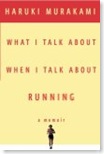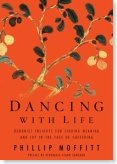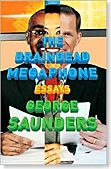From "The Myth of Multitasking," Christine Rosen, The New Atlantis (Spring 2008):
When we talk about multitasking, we are really talking about attention: the art of paying attention, the ability to shift our attention, and, more broadly, to exercise judgment about what objects are worthy of our attention. People who have achieved great things often credit for their success a finely honed skill for paying attention. When asked about his particular genius, Isaac Newton responded that if he had made any discoveries, it was “owing more to patient attention than to any other talent.”
 William James, the great psychologist, wrote at length about the varieties of human attention. In The Principles of Psychology (1890), he outlined the differences among “sensorial attention,” “intellectual attention,” “passive attention,” and the like, and noted the “gray chaotic indiscriminateness” of the minds of people who were incapable of paying attention. James compared our stream of thought to a river, and his observations presaged the cognitive “bottlenecks” described later by neurologists: “On the whole easy simple flowing predominates in it, the drift of things is with the pull of gravity, and effortless attention is the rule,” he wrote. “But at intervals an obstruction, a set-back, a log-jam occurs, stops the current, creates an eddy, and makes things temporarily move the other way.”
William James, the great psychologist, wrote at length about the varieties of human attention. In The Principles of Psychology (1890), he outlined the differences among “sensorial attention,” “intellectual attention,” “passive attention,” and the like, and noted the “gray chaotic indiscriminateness” of the minds of people who were incapable of paying attention. James compared our stream of thought to a river, and his observations presaged the cognitive “bottlenecks” described later by neurologists: “On the whole easy simple flowing predominates in it, the drift of things is with the pull of gravity, and effortless attention is the rule,” he wrote. “But at intervals an obstruction, a set-back, a log-jam occurs, stops the current, creates an eddy, and makes things temporarily move the other way.”
To James, steady attention was thus the default condition of a mature mind, an ordinary state undone only by perturbation. To readers a century later, that placid portrayal may seem alien—as though depicting a bygone world. Instead, today’s multitasking adult may find something more familiar in James’s description of the youthful mind: an “extreme mobility of the attention” that “makes the child seem to belong less to himself than to every object which happens to catch his notice.” For some people, James noted, this challenge is never overcome; such people only get their work done “in the interstices of their mind-wandering.” Like Chesterfield, James believed that the transition from youthful distraction to mature attention was in large part the result of personal mastery and discipline—and so was illustrative of character. “The faculty of voluntarily bringing back a wandering attention, over and over again,” he wrote, “is the very root of judgment, character, and will.”
[Thanks New York Times!]

 The core of all navigation is probably uncertainty: tolerating not knowing makes it possible to find your way. Not knowing means embracing what is not known rather than fighting with yourself over it. Since the mind always strives to know, not knowing is disorienting in a useful way. Uncertainty and not knowing teach you not to believe the stories your mind feeds you day in and day out. If you allow your own course to be mysterious, then even the hard things can become easy. This is the beginning of awakening.
The core of all navigation is probably uncertainty: tolerating not knowing makes it possible to find your way. Not knowing means embracing what is not known rather than fighting with yourself over it. Since the mind always strives to know, not knowing is disorienting in a useful way. Uncertainty and not knowing teach you not to believe the stories your mind feeds you day in and day out. If you allow your own course to be mysterious, then even the hard things can become easy. This is the beginning of awakening.













